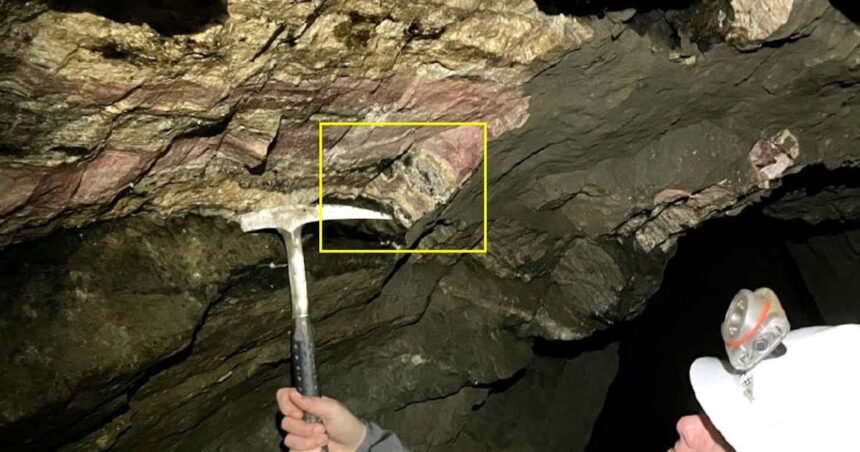The executive chairman of Salt Lake City-based US Critical Minerals told a House committee on Tuesday the company is poised to extract gallium this year in its partnership with Idaho National Laboratory.
Gallium, explained Harvey Kaye, has 3,800 military applications and is vital for national security and defense.
“We cannot be dependent on China for the supply of these minerals,” he stressed to members of the House Committee on Small Business.
He said the company has 339 claims in an area of southern Montana dubbed Sheep Creek on 10 square miles of land.
“This country can no longer have the Chinese knee on our neck,” Kaye said. “Therefore we need to work together as a group.”
Working with INL’s Robert Fox, there has been the development of technology called an electrochemical membrane reactor.
“It is environmentally conscious,” he said. “It has the ability to process rare earth elements in an efficient, environmental manner.”
By year’s end, the goal is to deliver up to two tons of gallium a day, but it has been an arduous process.
“It has basically taken us 15 years to do nothing,” he said, but that is slowly changing.
In contrast, the Chinese have taken a different approach.
“China and their government have been extremely supportive to create world dominance,” he said.
As an example, the only operational rare earth mine in the United States is located in the Mojave Desert in California.
But even the company that owns it — MP Materials — is partially owned by China, he said.
“That can’t be good,” he said, adding, “Let us do what we know how to do.”
The Minnesota problem
Rep. Pete Stauber, R-Minn., said the Obama and Biden administrations left a legacy that helped put the United States at a disadvantage.
“We’ve had an anti-mining political agenda in this nation that is crippling our strategic national security,” he said.
A 224,000-acre mining parcel had its permits stripped — essentially revoked — that had been in place since 1966.
Deposits in Minnesota of iron ore made into steel were among the richest in the world in terms of concentration: 82%.
“That helped us win two world wars,” he emphasized.
China, he said, stopped exporting six of the 17 rare earth elements it controls.
But he said there are some naysayers in Congress who have no desire to mine at all, which goes against the very real need the United States has.
“We can mine in Minnesota, we can mine in Alaska, we can mine in Utah, we can mine in Nevada, we can mine in California, we can mine in Washington and we can mine in Pennsylvania,” he said. “We have to have the political will to do it.”
Stauber has reintroduced legislation to overturn a 20-year mining ban near the Boundary Waters Canoe Area Wilderness that was imposed two years ago under the Biden administration.
The bill would also return two key federal mineral leases to Twin Metals Minnesota, the company vying to build an underground mine for copper and nickel near Ely, Minnesota, on the shore of Birch Lake, just south of the wilderness.
The Biden administration revoked those leases in 2022.
The committee also heard from Aaron Dowd, chief executive officer of Rare Earth Salts, based in Nebraska.
“The United States faces an unprecedented threat to our economic sovereignty and national security,” he said.
These rare earth elements and critical minerals are key components of multiple products in demand in the nation, including cellphones and batteries for electric vehicles, as well as products used in the health care industry, the manufacture of wind turbines and critical components used by the military, he said.
“Today, China controls 90% of the global downstream rare earth supply chain,” he said.
Despite this, the United States can unlock the potential to compete if it chooses to, Dowd said.
“The technology is ready and the market need is undeniable,” he said. “It requires a robust framework. … This is the oil of 100 years ago.”
Ken Mushinski, chief executive officer of Rare Element Resources, is leading this company in a rare earth element demonstration processing plant project in Wyoming.
He said the company has thrown more than $100 million into the effort.
In a statement on the company’s website, Mushinski stated:
“The knowledge gained from the operation of this demonstration plant will be of utmost importance to the progression toward full-scale commercial operations with our unique technology. Understanding the critical need for a secure, domestic rare earth supply chain, the company, with the unanimous backing of its Board of Directors, fully supports this opportunity for potential improvements through this review.”
More on the problem abroad
The company successfully obtained an operation license from the U.S. Nuclear Regulatory Commission at great cost and time, he said.
But China, he added, has the ability to flood the market and devalue the material — deterring additional investment.
A critic of the discussion, Rep. Gil Cisneros, D-Calif., said these discussions on critical minerals and rare earth elements have already been heard in multiple other committees.
“This sounds like an infomercial for President (Donald) Trump.”










